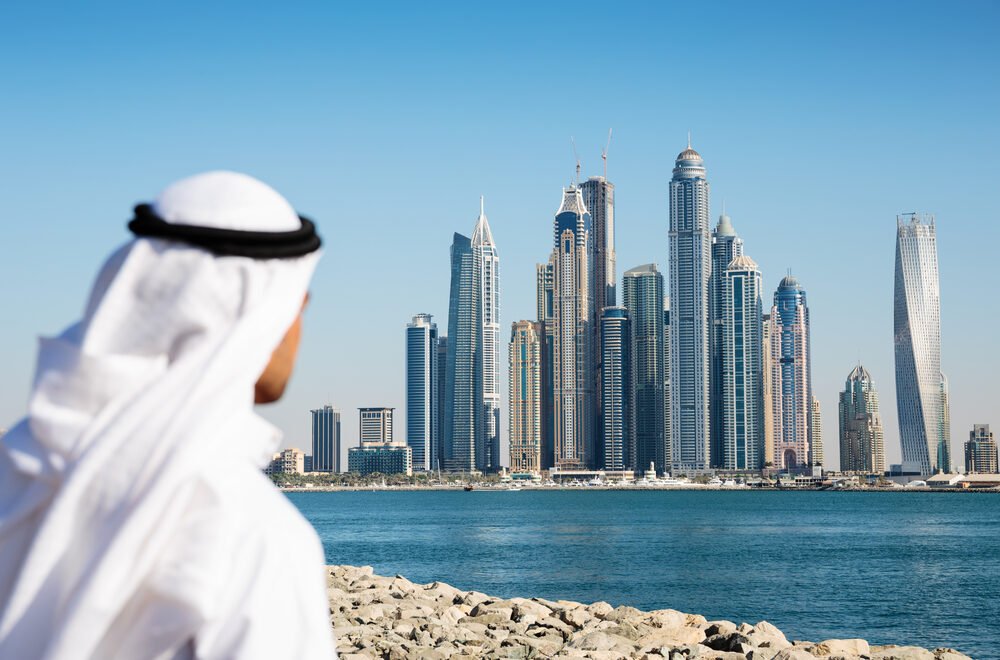Now Reading: How UAE Companies Are Prioritizing Employee Wellness Like Never Before 2025
-
01
How UAE Companies Are Prioritizing Employee Wellness Like Never Before 2025
How UAE Companies Are Prioritizing Employee Wellness Like Never Before 2025

Table of Contents
In today’s fast-changing corporate world, employee wellness programs are no longer seen as a luxury. In the UAE, companies across various industries are embracing wellness initiatives to create healthier, happier, and more productive workforces. This shift reflects not just a global trend but also aligns with the UAE’s national agenda to promote quality of life and mental well-being among its residents.
This article explores how these wellness programs are reshaping UAE workplaces, why employers are prioritizing them, and what benefits they offer to both employees and businesses.
The Growing Importance of Employee Wellness

The concept of employee wellness has gained momentum in the UAE in recent years. Organizations are realizing that a healthy workforce is more engaged, innovative, and less likely to suffer from burnout or absenteeism.
According to a report by the UAE Ministry of Health and Prevention, around 60% of working adults experience stress-related issues due to job demands. This alarming statistic has prompted companies to launch wellness initiatives focusing on mental, physical, and emotional health.
Popular multinational companies such as Google, Microsoft, and local firms like Emirates Group and Etihad Airways have already adopted structured wellness programs, setting examples for others to follow.
What Do These Wellness Programs Include?

Employee wellness programs in the UAE are comprehensive and varied. Some of the common features include:
- Fitness and Health Activities:
Many companies offer on-site gyms, yoga classes, Zumba sessions, and running clubs. Employers also provide free or discounted memberships to fitness centers. - Mental Health Support:
Psychological counseling, stress management workshops, and mental health helplines are now part of wellness packages. Some organizations even have “wellness rooms” for relaxation and meditation. - Nutritional Assistance:
Several firms provide healthy meals in their cafeterias and conduct sessions with dieticians to educate employees about balanced diets. - Flexible Working Hours:
To reduce stress, many UAE companies allow flexible working hours, remote work options, and encourage taking regular breaks. - Annual Health Checks:
Free medical check-ups and vaccinations are regularly organized to detect and prevent lifestyle diseases. - Employee Engagement Events:
Companies now host wellness weeks, sports tournaments, and team-building retreats focused on promoting a healthy lifestyle.
The UAE Government’s Role
The UAE government strongly supports workplace wellness initiatives. Programs like the National Program for Happiness and Wellbeing aim to make both citizens and residents healthier and more satisfied in life and work.
Moreover, the Dubai Health Authority (DHA) and Abu Dhabi Department of Health regularly release guidelines for corporate wellness and encourage private companies to align their policies with national health strategies.
In 2024, the “Wellness Certification Program” was introduced to reward organizations that demonstrate excellence in implementing employee well-being practices. This recognition motivates companies to invest more in staff wellness.
Benefits for Companies
For employers, wellness programs are not just about being “good” to their staff—they also make sound business sense.
- Increased Productivity:
Healthy and happy employees are more focused, energetic, and creative. - Reduced Sick Leave:
Wellness programs help prevent illnesses, reducing absenteeism rates. - Better Retention:
Employees are less likely to leave companies that care about their well-being, reducing hiring costs. - Enhanced Corporate Image:
A reputation as a caring employer attracts top talent in the competitive UAE job market. - Improved Employee Engagement:
Employees feel valued and motivated, leading to a positive workplace culture.
Challenges Faced by UAE Employers
Despite these advantages, there are still hurdles. Small and medium enterprises (SMEs) sometimes struggle to fund extensive wellness programs. Additionally, creating a culture of wellness requires consistent effort from leadership, which is not always easy to achieve in fast-paced industries like finance, real estate, and technology.
Another challenge is that some employees may not immediately participate in wellness activities due to cultural differences or lack of awareness. Therefore, companies must design inclusive and flexible programs that cater to a diverse workforce.
Success Stories
Emirates Airlines, one of the region’s biggest employers, has introduced comprehensive wellness packages including mental health apps, virtual counseling, and fitness contests. This led to a noticeable drop in employee stress levels and absenteeism, according to their internal HR reports.
Similarly, Etisalat, the UAE’s largest telecom firm, recently revamped its office spaces to include relaxation pods, yoga zones, and healthy snack stations. Employee satisfaction surveys revealed a 25% improvement in staff morale since these changes.
Future of Employee Wellness in UAE
The future looks promising. Experts predict that AI-powered wellness apps, wearable fitness trackers, and personalized health coaching will soon become standard offerings in UAE companies. With Expo 2030 and other major developments approaching, companies want to present themselves as modern, employee-friendly organizations to attract global talent.
Furthermore, the rise of hybrid and remote working models means companies will need to design virtual wellness programs that engage employees working from home.
Conclusion
Employee wellness programs are becoming a defining feature of progressive workplaces in the UAE. As the country focuses on health, happiness, and sustainability, these initiatives are no longer optional—they are essential for business success.
For employees, these programs offer a better quality of life, reduced stress, and improved job satisfaction. For employers, they provide higher productivity, better staff retention, and a stronger corporate image.
In the coming years, investing in wellness may become one of the smartest decisions UAE businesses can make.
Read More:- Shobha Realty Launches Its Most Luxurious Project Yet—Full Details Inside 2025






















